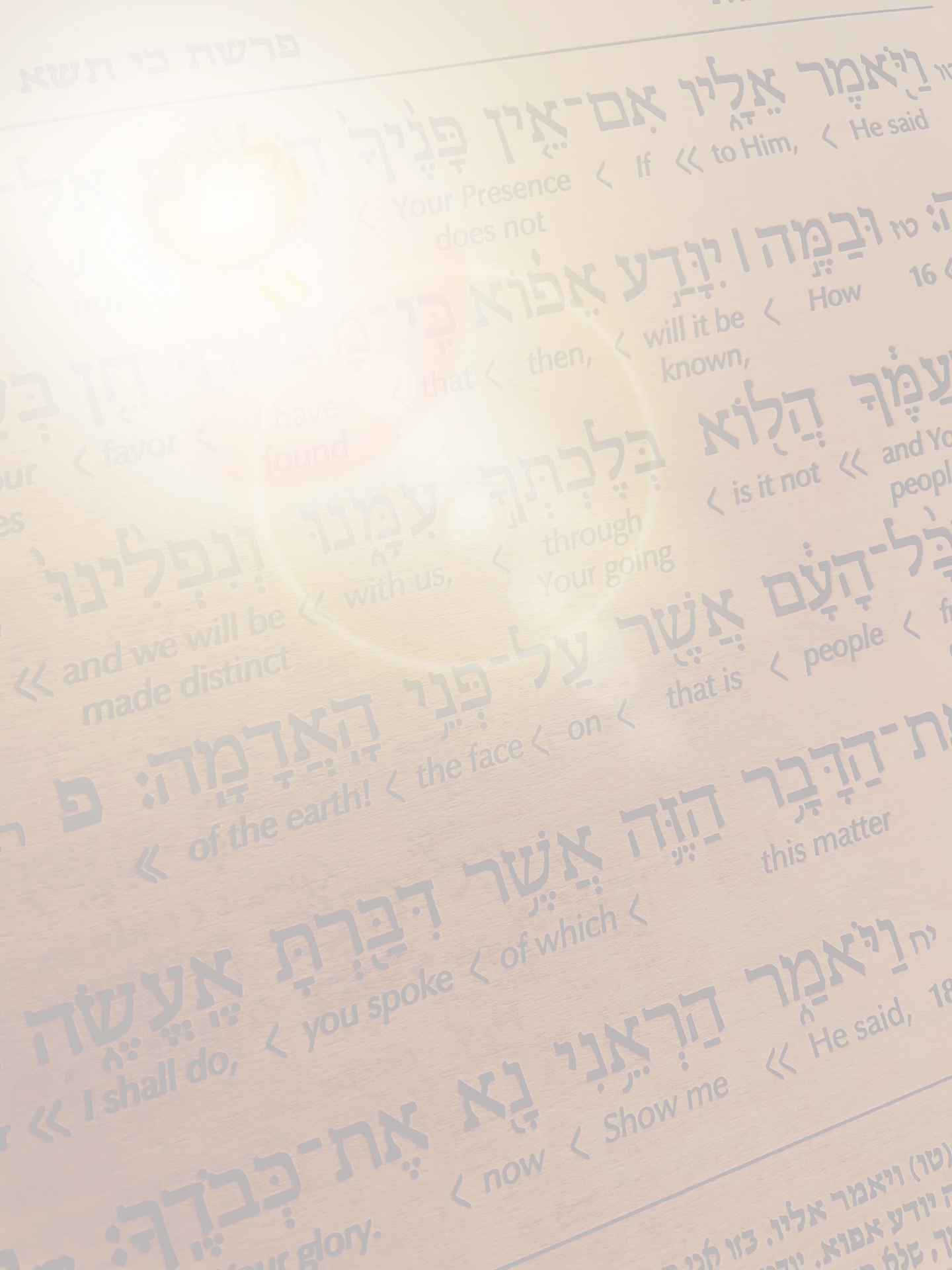

About the Course
CORE COURSE
First Semester
Weeks 1–4: Synthesis of Literary Forms
Topics:
Study of different literary genres (poetry, prose, drama).
Exploration of how Jewish ethical teachings can be applied across these genres.
Torah Integration: Analyze how Jewish teachings, such as those found in Ketuvim (Writings), enrich and deepen the understanding of literature.
Activities:
Comparative essay on various literary genres, incorporating Jewish ethical perspectives.
Group discussions on how Jewish literature and values shape each genre’s approach to storytelling.
Analyze exemplary works from each genre to extract Torah-based moral lessons.
Weeks 5–8: Literature of the Holocaust
Topics:
In-depth study of Holocaust literature, including memoirs, novels, and historical accounts.
Examination of the ethical and moral questions raised by Holocaust literature, such as faith, survival, and justice.
Torah Integration: Discussion of "Kiddush Hashem" and the role of faith and moral endurance during the Holocaust.
Activities:
Analyze a Holocaust memoir or novel and discuss its impact on ethical issues.
Multimedia presentation on the significance of Holocaust literature in preserving Jewish history and moral lessons.
Comparative analysis of different Holocaust literary works, emphasizing faith and resilience.
Week 9: Midterm Exam 1
Content: Covers material from Weeks 1-8.
Format: Combination of multiple-choice questions, short answer questions, and essay questions integrating Torah insights.
Weeks 10–13: Jewish Historians and Writing Styles
Topics:
Exploration of prominent Jewish historians and their contributions to historical literature.
Examination of writing styles used by Jewish historians to preserve Jewish history.
Torah Integration: Analyze how Jewish historians incorporate Torah values and Jewish identity into their works.
Activities:
Research and present on a Jewish historian, focusing on their writing style and historical contributions.
Write an analytical essay comparing the writing styles of two Jewish historians, discussing how Torah perspectives shape their narratives.
Weeks 14–17: Comparative Analysis of World Philosophers Searching for Truth
Topics:
Study of world philosophers and writers such as Tolstoy, Chekhov, Stefan Zweig, and Pushkin, focusing on their search for truth and meaning.
Exploration of their philosophical struggles and the ethical dilemmas they encountered.
Torah Integration: Speculative analysis of what these philosophers might have written about had they had access to Torah teachings, and how Torah values could have influenced their quest for truth.
Activities:
Write a comparative essay on one of these philosophers and a Torah scholar, analyzing the philosophical differences and similarities in their search for truth.
Group discussions on how Torah principles could have shifted their philosophical outlooks, with specific examples from their works.
Week 18: End-of-Semester Exam 1
Content: Covers material from Weeks 10-17.
Format: Combination of multiple-choice questions, short answer questions, and essay questions that incorporate both Torah perspectives and philosophical analysis.
Week 19: End-of-Semester Assignment 1
Assignment: A comprehensive project synthesizing themes from the first semester, including a reflective essay on how access to Torah teachings might have influenced the writings of world philosophers such as Tolstoy and Chekhov.
Second Semester
Weeks 20–23: Literature of the Jewish Diaspora
Topics:
Study of literature reflecting the experiences of the Jewish diaspora across different regions and time periods.
Analysis of how diaspora experiences influence literary themes and styles.
Torah Integration: Explore the concept of “Galut” (exile) and how it parallels themes of resilience and identity in diaspora literature.
Activities:
Write a research paper on a specific aspect of the Jewish diaspora as depicted in literature.
Group project on the influence of diaspora experiences on Jewish literary themes, with presentations on key historical moments.
Weeks 24–27: Business and International Communication
Topics:
Principles of effective business communication and the role of cultural sensitivity in international communication.
Study of case studies and real-world examples of business communication from Jewish and global perspectives.
Torah Integration: Analyze the ethics of business communication from a Torah perspective, focusing on honesty and transparency.
Activities:
Draft various business documents such as business proposals and international communications, integrating Torah ethics into professional writing.
Role-playing exercises to practice ethical negotiations based on Torah values.
Week 28: Midterm Exam 2
Content: Covers material from Weeks 20-27.
Format: Multiple-choice questions, short answer questions, and essay questions focused on business communication and Torah ethics.
Weeks 29–32: Contemporary Jewish Writers
Topics:
Examination of works by contemporary Jewish writers, focusing on Jewish themes and addressing modern Jewish identity.
Torah Integration: Explore how contemporary writers incorporate Torah values and Jewish teachings into their works, reflecting on modern challenges.
Activities:
Critical essay evaluating how contemporary Jewish writers address issues of faith, identity, and morality.
Author study presentations focusing on a contemporary Jewish writer, exploring how Torah values influence their work.
Weeks 33–34: Overview of Contemporary Torah-Based Writings
Topics: Study of contemporary Torah-based writings and their relevance to modern societal issues.
Torah Integration: Discuss how Torah insights are applied to contemporary challenges, such as ethics in technology or social justice.
Activities:
Analyze and discuss selected contemporary Torah-based writings.
Write a reflective essay on the application of Torah values to modern challenges.
Weeks 35–36: Self-Help and Personal Spiritual Growth Books by Rabbis
Topics:
Examination of self-help and personal spiritual growth books written by rabbis, focusing on themes of character development and spiritual refinement.
Torah Integration: Study Torah-based principles of personal growth, with a focus on Mussar literature (e.g., "Chovot HaLevavot").
Activities:
Select and analyze a self-help book by a rabbi, reflecting on how Torah values guide personal growth.
Group discussions on practical applications of Torah teachings in self-help literature.
Week 37: End-of-Semester Exam 2
Content: Covers material from Weeks 29-36.
Format: Multiple-choice questions, short answer questions, and essay questions integrating Torah perspectives.
Week 38: End-of-Semester Assignment 2
Assignment: A comprehensive project synthesizing themes from the second semester, including a reflective essay on how Torah values influence contemporary Jewish literature and personal development.


